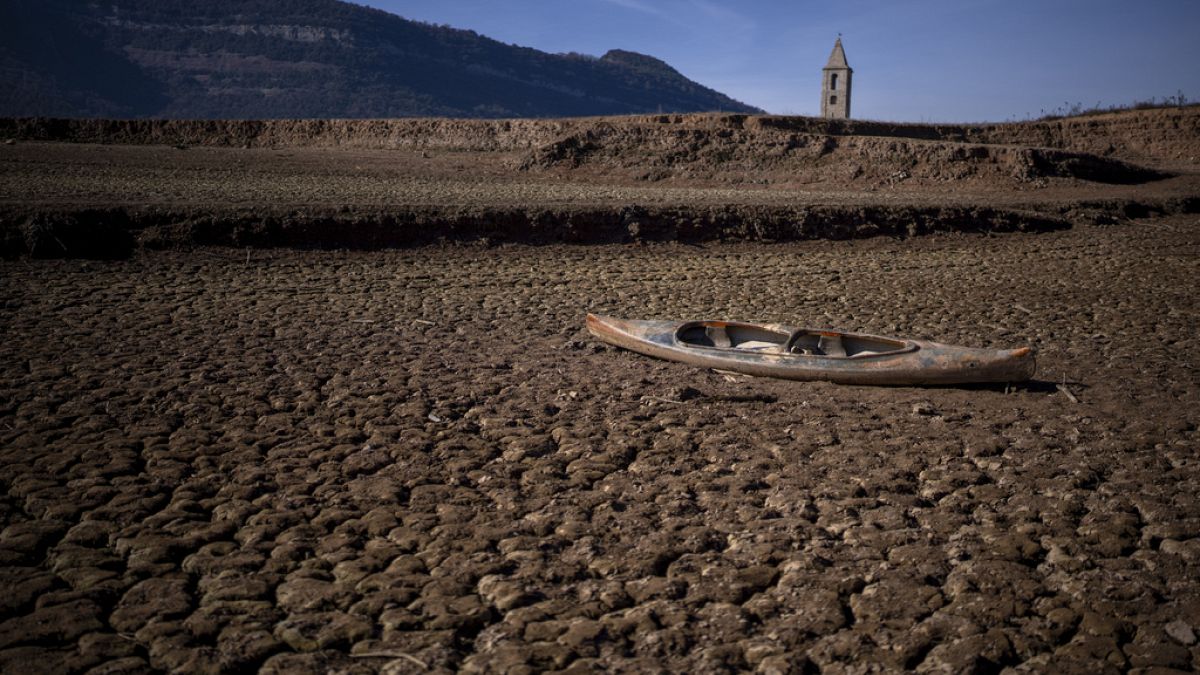Citizens could be fined for washing their cars or watering their gardens.
After months of warnings, Catalan authorities are expected to declare a state of drought emergency today.
This could mean more extreme water restrictions for 6 million people in Barcelona and 201 surrounding municipalities in northeastern Spain.
Washing your car or watering your garden could result in a fine of up to €50. Barcelona residents who commit serious “water violations” can be fined up to 3,000 euros.
An already bad situation has become even worse.
Catalan authorities declared a state of emergency In November of last year. High temperatures are now causing water levels in the reservoir, which were already low, to drop.
“Our reserves are below 16%. The situation around Barcelona and Girona is critical, so we are calling for stronger measures,” Catalan government official Laura Vilagra told Spanish radio station RNE on Wednesday. I have to take it,” he said.
The situation is exacerbated by the lack of rain in the region for about 40 months.
What are the water restrictions in Spain?
The plan drawn up by authorities is divided into three stages, which will change depending on how the drought worsens.
In the first phase, water consumption will be limited to 200 liters per person per day. In the second stage, it is reduced to 180 liters. At its most severe stage it reaches 160 liters.
According to the latest data from the National Institute of Statistics, Spaniards use an average of 133 liters of water per day.
Officials also plan to reduce water pressure. However, the city of Barcelona expects that this measure will not be implemented in households until July at the worst.
Fines could be imposed to force local governments to more closely monitor water consumption.
Just this week, while the entire town of Esponella in Girona is trying to save every drop of water, it was discovered that one of its neighboring towns is wasting 5 million liters of water a year.
Catalonia’s Water Authority warned the town that it was exceeding the average water consumption per inhabitant. The town council then asked the agency to send them a list of residents who used the most water.
The neighbor has now been fined 3,000 euros and authorities are considering cutting off his connection to the network, according to a statement from authorities to local media.
The area affected by the emergency drought measures stretches from northern Catalonia to the French border.
Agriculture and industry will also face cuts. The local state of emergency declaration aims to reduce water used for crop irrigation by 80%, livestock water by 50%, and industrial water by 25%. The Ebro River flows into the sparsely populated southern part of the region, which is in good condition.
“Dramatic predictions of climate change”
Catalonia has experienced below-average rainfall for 40 consecutive months. Experts say climate change is causing the problem. droughtThe entire Mediterranean region is expected to warm faster than many other regions of the world in the coming years.
“Droughts are natural in the Mediterranean climate pattern. What is very dramatic is the prediction of climate change. … What we are seeing is an increase in the intensity and frequency of droughts” Barcelona said Anneliese Brookman, a water management expert. CREAF, a research institute based in , told The Associated Press.
Brookman said there are important differences between the unusually severe drought that northeastern Spain is currently experiencing and the last severe drought in Catalonia in 2008, when boats were used to transport water to Barcelona. pointed out.
“In 2008, it rained a little in important places from time to time, so there were very few moments when nature as a whole could take a break,” she said. ”[This time] We are continually below normal patterns. And in fact, that is the most painful thing, because we are very resistant to periods of drought when there is some respite. ”
Catalonia has been facing planned water supply restrictions for several years. Prohibitions on watering lawns, watering private pools and washing cars will remain in place. Local governments cannot use potable water to clean roads.
Catalonia has so far been able to avoid stricter regulations, mainly thanks to its desalination and water recycling systems, which currently account for 55% of the region’s total water consumption. . Spanish authorities are spending millions of euros on expansion and expansion. build a new desalination plant along the coastal areas that suffer most from drought.
But both Catalonia and Spain’s southern Andalusia region are preparing to import water by boat if needed this summer, although authorities admit this expensive option will have limited effectiveness. .
